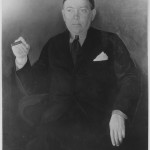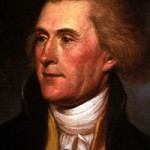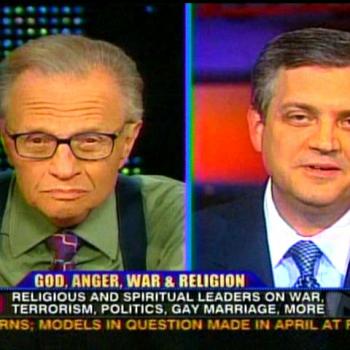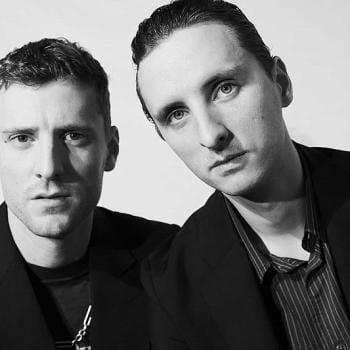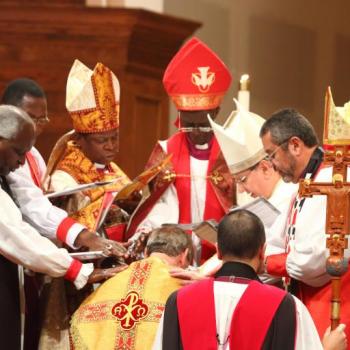Gene Veith asks for a theological rationale for a state church:
What is the theological basis for a state church? As an American who takes for granted the separation of church and state and as a Missouri Synod Lutheran, whose religious forebears fled the state church, it’s hard for me to understand. And yet, the golden age of Lutheran orthodoxy in the 17th century took place in state churches. Doesn’t the concept violate the doctrine of the Two Kingdoms? I understand the historical reasons for it, but there must be theological reasons for it as well, even if I don’t agree with them. Did Chemnitz, say, have anything to say about this? Surely the Anglicans did. Can anyone help me with this? The American free market-style religious diversity seems to be the exception rather than the norm, and I’m curious what reasons have been put forward for the norm.
I wonder if the Establishment Principle will scratch Veith’s itch. This is the idea that Scottish Presbyterians propounded and in some cases still do. Here’s is Donald McLeod‘s (Free Church of Scotland) definition:
Historically, the Establishment Principle has meant (1) official state recognition of Christianity as the national religion (2) endowment of the church by the state and (3) civil government having a clearly defined responsibility with regard to religious matters. This responsibility extended to promoting the peace and unity of the church, ensuring the due observance of gospel ordinances and even the suppression of blasphemy and heresy (Westminster Confession, 23.3)
All this was possible in a world such as 17th century Scotland, where Christianity was the only religion, there was only one Christian denomination, and politicians and churchmen shared the same faith. But what can the Establishment Principle mean in a society where Christians are a minority, the church has broken up into literally thousands of denominations and political power lies in the hands of a determined secularism?
Those questions indicate that state churches, even on Establishment Principle grounds, are harder to justify. But that doesn’t stop McLeod:
Thirdly, we have to remind the state of its constitutional obligations to Christianity. At the heart of the Union of 1707 there lay a religious settlement, agreed by the parliaments of both Scotland and England. In accordance with that settlement, Her Majesty the Queen, like all her predecessors since George I, has sworn at her Accession (in Scotland) and at her Coronation (in England) to maintain the ‘True Protestant Religion’. Since then, of course, the monarchy itself has altered dramatically. It has laid aside (or, more accurately, been stripped of) its absolutist pretensions and accepted its role as a limited or constitutional monarchy. On the face of things, real power now lies with Parliament. Strictly speaking, however, the governing authority is the Queen-in-Parliament: no Bill passed by Parliament can become an Act until stamped with the Great Seal of the Realm, to indicate Royal approval. But the transition to constitutional monarchy cannot invalidate the religious settlement agreed as a condition of the Union of 1707. The Sovereign may not ratify any Bill which violates her Accession Oath to uphold the Protestant religion; and Parliament should never put the Sovereign in a position where he or she has, in effect, to commit perjury. The Accession Oath binds not only the Queen, but the Queen-in-Parliament.
Even beyond United Kingdom politics, McLeod believes that churches and governments need each other:
. . . the church’s activity is not limited to preaching and the conduct of public worship. She also provides a wide range of social services such as, for example, care-homes, and it is grossly unfair that such homes currently face a choice between receiving government funding and advertising for Christian staff. How can they provide Christian care if they have to recruit staff who have no sympathy with the Christian ethos? And why should the Christian elderly have to end their days in establishments which have no respect for their feelings, where communal worship is forbidden, and where it is assumed that every old person’s dream is of pop and bingo? This is another instance where the pretended religious neutrality serves only as a cloak for state-endowed atheism.
The church would be equally justified in asking for some state-recognition of the value of its youth-work. Government probably sees Christian youth clubs as merely proselytising agencies. In reality, the community benefits are considerable. While some of the young folk may indeed be converted, many more are simply taken off the streets and helped to become better citizens, and in many an inner-city area this represents a huge contribution to social stability. Yet the government, smelling only religion, gives little support. . . .
the church must educate government as to those Christian values which should form the basis of its administration. The most fundamental and relevant of these is stated in Isaiah 61.8, ‘I, the LORD, love justice’. We must be careful not to join the current chorus of protest against the concept of human rights. God is concerned for the rights of all his creatures, and hates to see them violated. This is why he is always on the side of the victims of injustice, and it follows from this that the rights of widows, orphans, aliens, immigrants, the sick, the unemployed, the disabled, the homeless and the marginalised must lie at the heart of any political witness borne by the church. Our voice cannot be limited to narrow issues of law-and-order, far less to questions of sexual morality. We must speak in support of the powerless and the speechless.
Although I am a Presbyterian, I am not persuaded by McLeod’s argument for Establishment in principle. That may suggest that nationality (Veith and I are Americans) explains Christian attitudes toward the state more than theology (Veith is a Lutheran and I am a Calvinist).
Image: Thomas Chalmers

